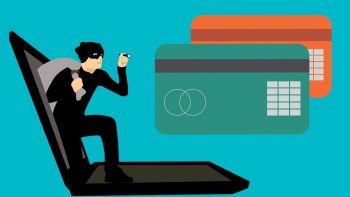Safeguarding – FRAUD
Safeguarding – FRAUD
New figures revealed victims of online shopping scams lost on average £1,000 per person during last year’s festive shopping season.
The figures, which come from reports made to Action Fraud and analysed by the National Fraud Intelligence Bureau (NFIB), showed that shoppers across England, Wales and Northern Ireland were scammed out of £15.3m between November 2021 and January 2022. Although the age group most affected was between 18 and 25 years old, we are all potential victims.
Scams ranged from one shopper losing more than £150 trying to purchase a mobile phone on social media to another being duped out of more than £7,000 during an attempted online camper-van purchase!! Meanwhile, another victim lost almost £500 when trying to buy shoes on a social media platform, and a fourth lost £145 trying to make a similar purchase.
Top tips to shop online securely this festive season:
Action Fraud and the National Cyber Security Centre (NCSC) are urging online shoppers to protect their accounts, check before they buy, and use secure payment methods in order to stay ahead of the threat from criminals this shopping season:
Protect your accounts: set up 2-step verification (where possible) and use three random wordspasswords to prevent cyber criminals from gaining access to your shopping, bank or email accounts.
Choose carefully where you shop: Research online retailers, particularly if you haven’t bought from them before, to check they’re legitimate. Read feedback from people or organisations that you trust, such as consumer websites.
Pay securely: Use a credit card when shopping online, if you have one. Most major credit card providers protect online purchases and are obliged to refund you in certain circumstances. Using a credit card (rather than a debit card) also means that if your payment details are stolen, your main bank account won’t be directly affected. Also consider using a payment platform, such as PayPal, Google or Apple Pay. And whenever you pay, look for the closed padlock in the web address bar – it means your connection is secure.
For more advice on how to shop online securely this festive season, visit: https://www.ncsc.gov.uk/guidance/shopping-online-securely
If you have a credit card – use it. If the worst happens, your credit card provider is obliged to help. Use payment platforms like PayPal, Google or Apple Pay where possible. Learn more at @CyberAwareGov:
https://www.ncsc.gov.uk/guidance/shopping-online-securely
What to do if you become a scam victim
Call your bank directly, checking its website for the correct number to ring. If the fraud involved any of your personal information, consider signing up for a Protective Registration with fraud prevention organisation Cifas, which costs £25 for two years.
Change your passwords for any accounts that have been compromised due to fraud – and any that use the same password. Set up two-factor authentication wherever possible to provide another layer of protection.
Being scammed can take a huge toll on mental health. Mind and Victim Supporthave confidential helplines that provide support to consumers who have been hit.
Stay safe this festive season!!!
Steve Orme
